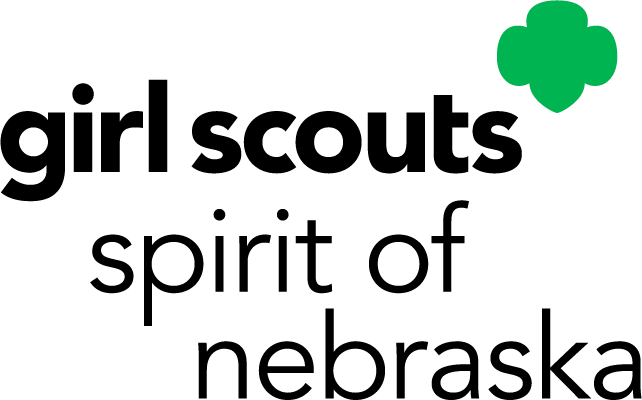Language shapes much of the world we live in. How we communicate and engage with one another is a simple but profound way to reflect respect for others, showing that we see and support them as they are. Girl Scouts Spirit of Nebraska strives to employ language that mirrors the diverse experiences and identities of all our members. While it may seem like a small shift, considering the words we use has a larger ripple effect upon the relationships we build and the type of community that we would like to cultivate. We hope that you will join us as a Council as we continue to learn, grow, and support all Girl Scouts as they work to make the world a better place.
“Simply put, words matter. Language is powerful. It can enhance our empathy, clarity, and understanding of each other as complex individuals with intersectional and varied identities and experiences.”
– Efua Andoh
A
Ableism: Prejudice and/or discrimination against people with mental and/or physical disabilities.
Ageism: Prejudiced thoughts and discriminatory actions based on differences in age.
Anti-Racism: The policy or practice of opposing racism and promoting racial tolerance.
B
Bias: An often-implicit inclination, tendency, or prejudice towards someone based on their identity.
C
Cisgendered: Refers to an individual whose gender identity aligns with the sex they were born with.
Culture: Shared values, beliefs, customs, arts, etc. of a particular group, area, or time.
D
Disability: A mental or physical condition that restricts an individual's ability to engage in one or more major life activities (e.g., seeing, hearing, speaking, walking, communicating, sensing, breathing, performing manual tasks, learning, working, or caring for oneself).
Discrimination: The practice of unfairly treating a person or group of people differently.
Diversity: The range of human differences, including but not limited to race, ethnicity, gender, gender identity, sexual orientation, age, social class, physical ability or attributes, religious or ethical values system, national origin, and political beliefs.
E
Equality: Achieved when people are treated the same, regardless of what they look like or where they come from.
Equity: Fair and just practices that ensure access, resources, and opportunities are provided for all to succeed and grow.
Ethnicity: Belonging to a common group with shared heritage, often linked by race, nationality, culture, and language.
G
Gender: Often defined as a social construct of norms, behaviors and roles that vary between societies and over time. Gender is often categorized as male, female, or nonbinary.
Gender Identity: An individual’s internal sense of their gender. This may or may not match their assigned sex at birth.
I
Inclusion: Involvement and empowerment, where the inherent worth and dignity of all people are recognized.
Injustice: An act that involves unfairness to another or violation of one's rights.
Intersectionality: The interconnected nature of social identities—including race, gender, class, and sexual orientation—and how systems of inequality overlap to create unique dynamics.
P
Prejudice: An inclination that can be rooted in stereotypes and/or judgement that deny members of certain groups equal recognition and treatment.
Privilege: An unearned, sustained advantage afforded to some over others based on group identities related to race, gender, sexuality, ability, socioeconomic status, age, and/or other identities.
R
Race: A social construct that divides people into distinct groups based on characteristics such as physical appearance (particularly skin color), ancestral heritage, cultural history, etc.
Racial Justice: The systematic fair treatment of people of all races resulting in equitable opportunities and outcomes for all.
Racism: A belief that race is a fundamental determinant of human traits and capacities, and that racial differences produce an inherent superiority of a particular race.
S
Sexual Orientation: Refers to who someone is attracted to and wants to be in relationships with. This can include gay, lesbian, straight, bisexual, and asexual.
Social Justice: A form of activism based on principles of equity and inclusion that encompasses a vision of society in which the distribution of resources is equitable and all members are physically and psychologically safe and secure.
T
Transgender: A person whose gender identity differs from the sex the person had or was identified as having at birth.
Sources: ADL (Anti-Defamation League); Center for Intersectional Justice; GLSEN (Gay, Lesbian & Straight Education Network); HRC (Human Rights Campaign); Merriam-Webster; NACo (National Association of Counties)









